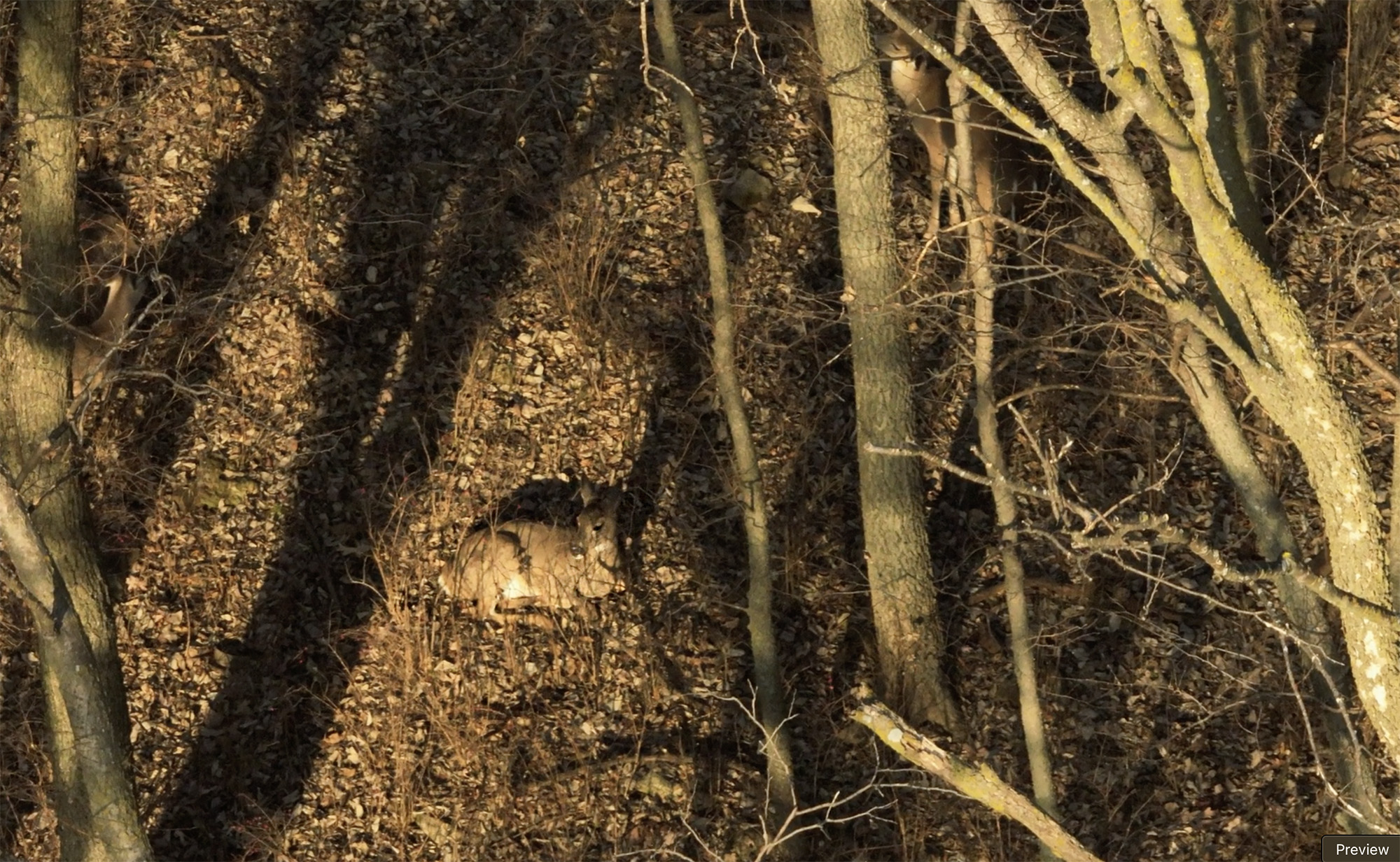Starting Sunday, Missouri hunters will be able to use drones to track and recover wounded deer, elk, black bears, and wild turkeys. The rule change was included in the Missouri Department of Conservation’s 2024 hunting regulations book, and the MDC reminded hunters of the change in a Sept. 6 announcement. Archery seasons for both deer and fall turkey open Sept. 15.
Importantly, the new rules specify that hunters are still prohibited from using drones to harass, pursue, and take game. There are also a few caveats that drone operators should be aware of regarding permissions, permits, and the possession of weapons. The new regulations stipulate that:
- Drone operators need to get permission from a public or private property owner before launching. Using drones on conservation lands requires the explicit permission of a conservation agent.
- Drone operators do not need a hunting permit unless they are the person who wounded the animal.
- Drones fitted with thermal imagery equipment are permitted when used in accordance with all other regulations.
- No one in the hunting party can possess a firearm, bow, or other weapon that can be used to take wildlife while the drone is in flight. The only exception is for concealable firearms.
An in-depth explanation of the new regulations surrounding drones can be found under “Hunting Methods” on p. 4 of the Missouri Wildlife Code.
The MDC’s legalization of drones for deer and other game recovery comes as other states grapple with how to regulate the new technology, and as legal challenges to current drone regulations work their way through the courts.
Many wildlife managers, along with hunters and lawmakers, have legitimate concerns around fair-chase ethics and whether drones offer hunters an unfair advantage. Some also worry that their use could lead to any number of unethical scenarios, such as finding a bigger buck while trying to locate a wounded deer. (MDC’s rule change attempts to close this ethical loophole by making it clear that drones cannot be used to harass wildlife, and that a hunter can’t pursue an animal that has been harassed with the aid of a drone.)
Read Next: Drones Could Revolutionize How Hunters Recover Lost Deer … If They’re Not Banned First
These concerns have led to nuanced regulations around drones in several states, and the National Deer Association provided an overview of these rules in its latest Annual Deer Report. The report showed that of the 45 states that responded to NDA’s survey, 17 allowed the use of drones during deer season, and all but four of those allowed drones to be used to recover deer and other game. (Missouri’s regulation change brings those nationwide totals to a minimum of 18 and five, respectively.)
A key determining factor here is whether the recovery process is considered part of the act of hunting. In New York and Pennsylvania, for example, the attempted recovery of a game animal is considered part of the pursuit and taking of that animal. Missouri, on the other hand, clarifies that the use of dogs and/or drones to track a wounded deer, elk, bear, or turkey are excluded from its definitions of “pursue” and “take.”

